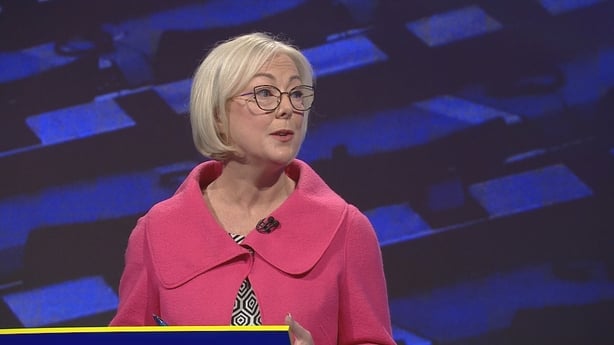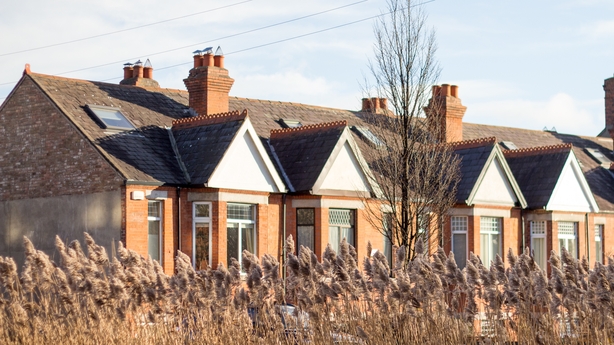The European Commission has set out its work programme for 2025, with an emphasis on simplification and reducing the administrative burden of EU rules.
The publication comes amid an increasing focus on de-regulation across many spheres, which may be seen in the light of US President Donald Trump's ongoing attacks on EU rules and how they impact US corporations.
In general, the Commission said its work programme this year will focus on boosting competitiveness, enhancing security, and bolstering economic resilience.
The legislative agenda will be significantly inspired by the recent reports into the EU’s lack of competitiveness and the need to boost the single market, by former ECB president Mario Draghi, and former Italian prime minister Enrico Letta respectively.
Security and defence will also feature significantly this year, with an eagerly awaited White Paper on European defence expected in mid-March.
Irish officials have acknowledged that the simplification of EU rules, especially corporate reporting obligations linked to the European Green Deal, have become onerous, especially for the SME sector.
Some 11 pieces of EU legislation are promised this year on simplifying rules.
The Commission today said it would aim to reduce corporate reporting and other obligations by 25% for all companies and 35% for SMEs, with an estimated saving of €37.5 billion.
Stakeholders will also be invited to share their experience on the impact of EU law on the ground during so-called "reality checks", in order to identify hurdles faster.

In a statement, the Commission said simplification would initially target environmental rules, such sustainable finance reporting, sustainability due diligence and taxonomy, which defines criteria for economic activities which enable the EU’s net zero targets for 2050.
The Commission also plans to streamline permit granting, authorisations and reporting requirements for initiatives like the Industrial Decarbonisation Accelerator Act.
The statement also said there would be further simplification measures around the Common Agriculture Policy (CAP) and to boost innovation and investment in the defence industry.
However, environmental groups have attacked the emphasis on deregulation.
Greenpeace’s EU senior political campaigner Ariadna Rodrigo said Commission President Ursula von der Leyen was "competing with [Elon] Musk and Trump to wreck protections for people and planet".
She added: "This Commission plan only helps Europe's shareholders to be competitive, at the expense of prosperity, green jobs and a healthy environment for ordinary people."
The work programme was due to be presented by President von der Leyen in Strasbourg this morning.
However, due to her involvement in the trade tariffs issue, she has remained in Brussels, with the programme instead announced by Trade Commissioner Maroš Šefčovič.
Fine Gael MEP Regina O’Doherty has expressed disappointment that there was no mention of housing in the work programme.
While MEPs were informed there would be no dedicated legislation on housing this year, they were expecting language on the Commission’s Affordable Housing Action Plan.
While housing has not been an EU competence in the past, the new Commission has included it as part of the portfolio of Dan Jørgensen, the Danish Commissioner for Energy and Housing.
Ms O’Doherty, who is on the European Parliament’s housing subcommittee, said: "There is big ambition to uproot the problem of high house prices.
"It’s not a competence of the EU, we’re not looking for money, but we can tackle regulations that are hindering home building. Unless there is a commitment to it, then having a Commissioner for housing could become a damp squib."

Fellow Fine Gael MEP Maria Walsh said she will be "engaging" European Commissioners over the coming weeks to "ensure Irish people tangibly feel the benefits of the work programme".
Big pieces of EU legislation coming up include an Affordable Energy Action Plan and the Clean Industrial Deal, the successor to the European Green Deal which is expected to take greater account of industries as they strive to remain competitive while meeting net zero emissions targets.
The European Commission will also adopt a new framework to accelerate and simplify the process of returning irregular migrants to their countries of origin, an issue which has remained mired in the EU legislative process since 2018.
The Commission will also begin the process towards the adoption of the EU’s long term budget, which will take effect in 2028.
Much of the heavy negotiation on the budget, which will be under strain as the EU pays back Covid-19 recovery plan loans, as well as meeting defence and enlargement needs, will fall during the Irish presidency of the European Union in the second half of 2026.
European Commission committed to affordable housing initiative
The European Commission committed to examining an affordable housing initiative which it said would have "real impact on the ground".
The initiative was expected to be included in its work programme published earlier.
However, it highlighted the issue as a priority in its work programme which sets out its agenda for the year.
However, instead, engagement will get under way to bring it forward in 2026, when Ireland holds the EU presidency.
We need your consent to load this rte-player contentWe use rte-player to manage extra content that can set cookies on your device and collect data about your activity. Please review their details and accept them to load the content.Manage Preferences
The EU has no legal powers in the area of housing, but after it emerged as a major issue during last year's European elections, the EU institutions have become more proactive.
The Commission said recent crises have challenged the EU’s highly treasured social model, by impacting on the cost of living and housing.
Addressing the Parliament, Commissioner Šefčovič said the Commission will be engaging stakeholders with a view to bringing forward an affordable housing scheme next year.
The European Parliament for the first time set up a housing committee to examine solutions.
Its vice chair Regina Doherty said options that could be looked at include resources coming from existing EU funds to build more homes and the removal of regulations that add layers of costs to local builders.
Fellow committee member Labour’s Aodhán Ó Ríordáin said EU consumer rights laws should be used to protect tenants from no-fault evictions.
Additional reporting Mary Regan







